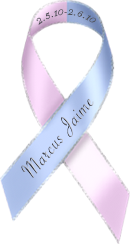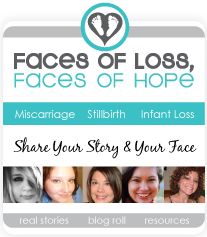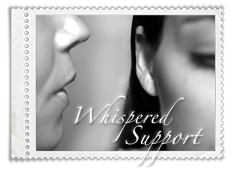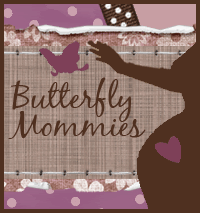A close family member told me lately that there are different forms of grief -- various instances where we experience feelings of loss. Since we lost Marcus I have read a number of books stating this same fact as well and I acknowledge it. We grieve when a loved one is lost, may it be through death or broken relationships. We grieve when we lose a job or a business which we have learned to love all these years. We grieve when we lose a business deal. We grieve when we lose material things that we consider priceless and irreplaceable. By definition, loss simply means an end to something. What was once there is now gone, sometimes nowhere to be found.
Interestingly enough, while I jot down these types of losses, one Filipino word keeps on repeating in my head. "Sayang." A very common term Filipinos say when they feel something worthwhile is wasted. With Americans, they usually say, "What a waste."
But what is considered "sayang" anyways? Is it right to weigh these losses into different degrees of depth? Which weighs more than the other?
The most common form of grief that people automatically attach with the word is death. Coming from a person who has lost 2 loved ones in 4 years - 3 in 10 years - and most recently 1 just 4 months ago, sadly I have become an expert in losses. Maybe I could call it a progressive loss, where the pain of losing one loved one at a time gets deeper and more intense each time. And each time, it digs deeper and deeper into the core of my still wounded, barely recovered heart. Ten years ago I lost my Nanay (our nanny) who took care of us siblings since birth, four years ago I lost our Papa Jaime, and just four months ago I lost my infant son Marcus.
So why does grief significantly coincide with death compared to the others I mentioned early on?
Because death is final.
The finality of death is unspeakable. One can't even comprehend the unfathomable despair of death until they experience it themselves. It is more than a closed book, bigger than packing your bags, greater than seeing someone exit the door, more significant than cleaning up your office, more than signing divorce papers, hugely different from surrendering the keys, graver than anything material that one could possibly lose.
When someone loses a loved one through a broken relationship, the people involved seldom reconcile. And when or if they ever do, there will always remain some sort of unspoken bad blood between the two. The bottom line, shouldn't that be considered as "good riddance" anyway? If you were wronged, the emotional baggage is not worth hanging on to. Though ultimately, the person is still very much there. No matter how burnt the bridge is, it can always be rebuilt.
Losing material things is another. When you lose a job or business, a house or car, a business deal -- all of these can be replaced even superseded. The time and effort one has put into acquiring it is greatly considered, yes, and it is a waste. "Sayang." Yet the obvious fact is, it can all be obtained again, in one form or another. The bottom line, it can be fixed.
This does not say that one loss deserves better acknowledgment than the other. Who wants to experience greater grief than the other anyway? I assume nobody would want to be included in this contest. Life in itself is dramatic enough. I seriously do not wish for anyone to experience the extreme heartbreak I currently live through.
I usually wonder why some people see it that Jhon and I should be over our grief by now. Is there a time limit to grieving? Is 4 months enough time to finally lock up our emotions and treat life as if we never lost a child? Is Marcus' short life easier to get over compared to a person who lived a hundred years? I wonder again, if people looked at themselves during times when they were in deep grief, would they have told themselves to stop feeling? Scathing, yes. Pun very much intended.
Grief does not have to be altogether bad. Grieving does not mean you are weak. Grieving and being true to yourself does not mean you are dwelling. Jhon and I have reached a point in our mourning where we are learning how to live with it. The fact of the matter is, it is the additional stress and external forces in life that compound the affliction.
The vital detail that needs to be addressed is how you channel grief into something monumental, something positive.
Good Grief.
Grieving does not automatically define us to be sulking and sinking into deep depression. Our 4 short months of grief has taught Jhon and I to better ourselves. We are fortunate enough to have found books that aided in our healing. These books paved our path to acceptance. During times when we could not articulate the emotional roller coaster of it all, these books shed light into every perplexing feeling we experienced. Expert advice of clinical psychologists who specialize in neonatal loss and grief; stories of other parents who went through the same experiences we did and offered learning 'modules' into understanding grief and channeling it into meaningful actions. We are still very much grieving though we do not see wrong in that. Our grief does not cripple us, it empowers us.
The short life of our son taught us to live a more meaningful life. His memory fuels us into doing good for others. Every time I have an epiphany for a project to honor Marcus it lifts my spirits knowing that because of him we are living a life not only for ourselves but for others as well. My heartache and loss is channeled into something positive.
"Sayang?" I refuse to believe that the loss of our son has gone to waste, in a matter of speaking. His short life is not "sayang." Our grief and intense longing for him is "not a waste." The magic of Marcus has turned a gruesome negative into a momentous positive. This is a pivotal time in our lives and we consciously decide to utilize it for others.
Marcus' love has catapulted us into becoming humble benefactors to select recipients, one Baby Step at a time. His love emanates. Hence, The Love Of Marcus Fund.
A labor of love to honor his memory and to make his short life count through outreach projects. Simple and pure. It is not bound by selfish reasons or illusions of grandeur. Pure love, pure assistance.



















No comments:
Post a Comment